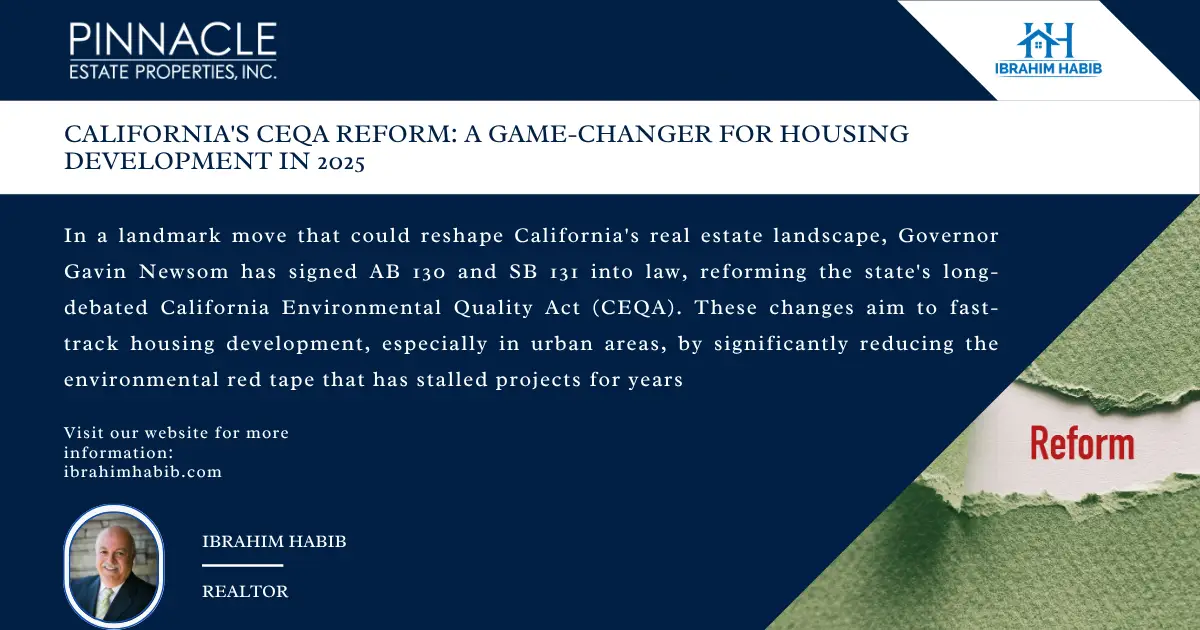In a landmark move that could reshape California’s real estate landscape, Governor Gavin Newsom has signed AB 130 and SB 131 into law, reforming the state’s long-debated California Environmental Quality Act (CEQA). These changes aim to fast-track housing development, especially in urban areas, by significantly reducing the environmental red tape that has stalled projects for years.
Why This Matters California faces a well-documented housing shortage, with an estimated deficit of 3.5 million homes. CEQA, originally intended to protect the environment, has long been criticized for being weaponized to block or delay housing projects. The new reforms are designed to remove unnecessary hurdles while maintaining core environmental safeguards.
What’s Changing The CEQA reforms primarily:
- Exempt many urban infill housing projects from prolonged CEQA reviews.
- Limit the ability of opponents to file frivolous lawsuits that stall housing developments.
- Streamline approval for transit-oriented and affordable housing projects.
Impact on Developers and Investors
For real estate developers, this is a green light. Projects that once took 2–3 years just to clear environmental review could now break ground in months. Major REITs and private developers are already eyeing expansion opportunities in Los Angeles, San Diego, and the Bay Area.
Concerns from Environmentalists
Not everyone is celebrating. Some environmental groups worry that loosening CEQA regulations could open the door to unchecked development. However, lawmakers insist that the reforms are targeted and preserve essential environmental standards.
What It Means for the Market
- More Housing Supply: A surge in project approvals could ease the housing crunch and stabilize prices.
- Faster Timelines: Shorter approval processes mean quicker returns for investors.
- New Investment Hotspots: Urban cores and transit corridors are expected to see the most growth.
Conclusion
California’s CEQA reform is more than just a legislative tweak—it’s a potential turning point in solving the state’s housing crisis. For real estate professionals, developers, and investors, understanding and adapting to this new landscape is not just smart—it’s essential.
Looking to capitalize on the CEQA reform wave? Partner with experts who can help you navigate this evolving market and identify high-potential opportunities.







